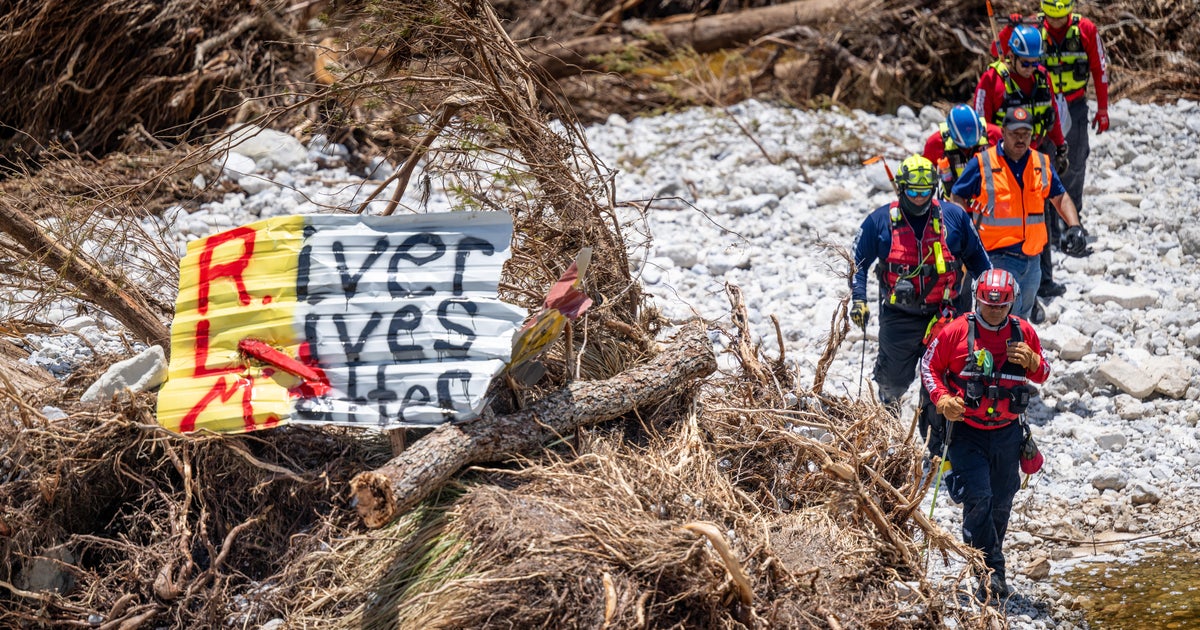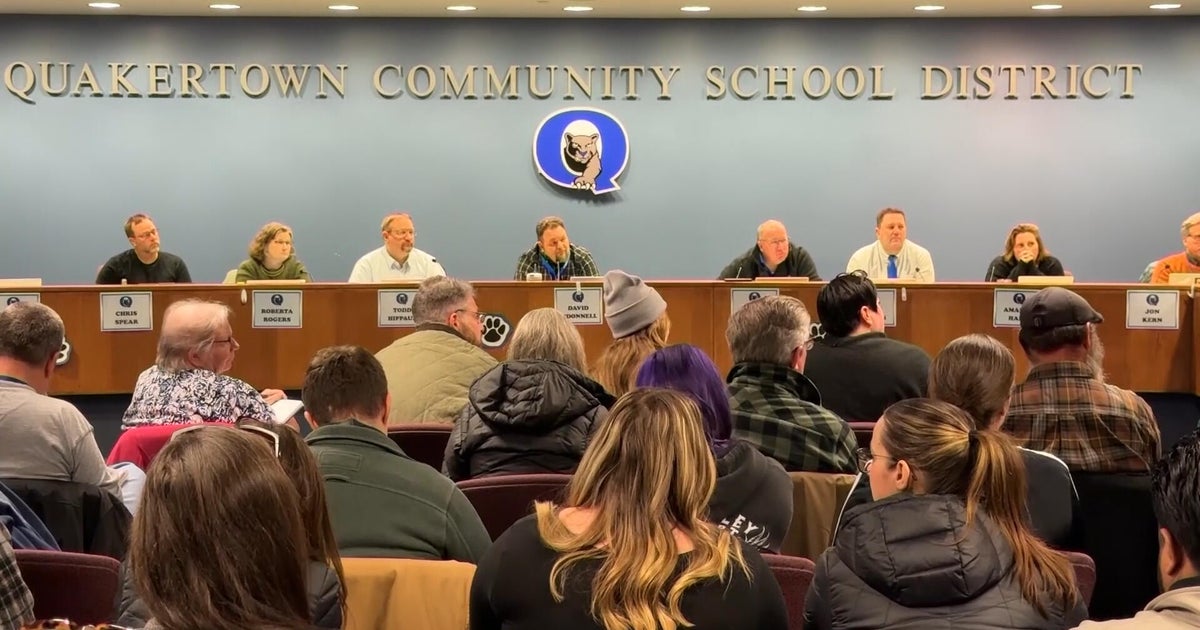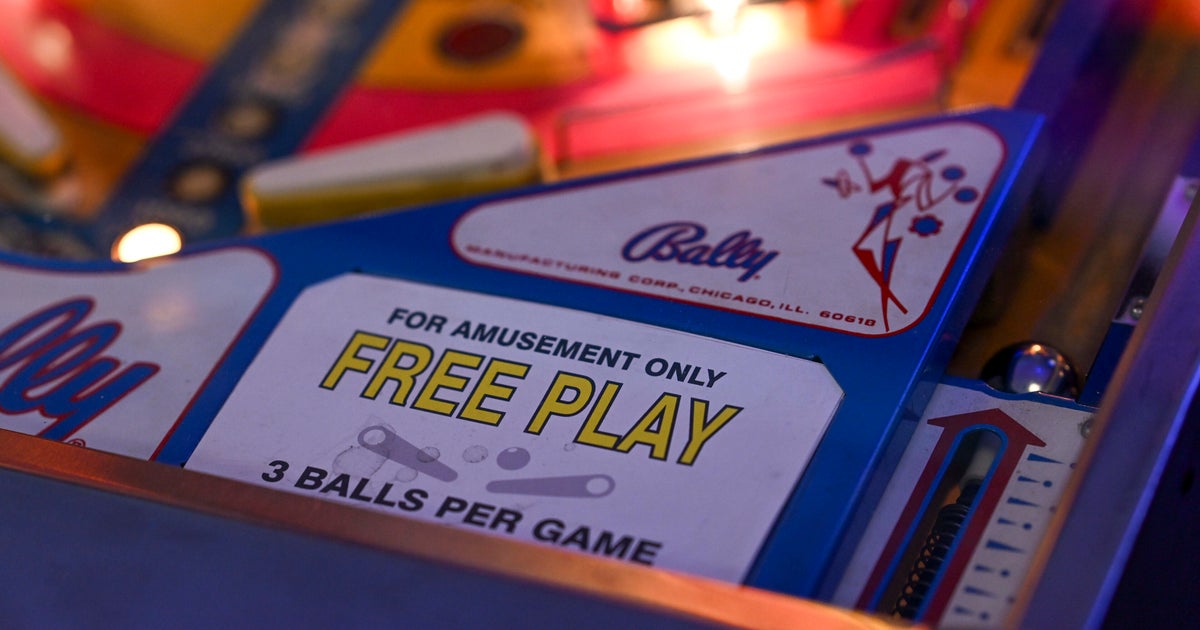Pari-Mutuels Fire Back At Seminoles In Gambling Appeal
TALLAHASSEE (CBSMiami/NSF) – Accusing the Seminole Tribe of being "disingenuous with the court," two pari-mutuel operators on Tuesday urged a federal appeals court to reject the tribe's request for a stay of a ruling that struck down a gambling deal that allowed sports betting in Florida.
The tribe filed an emergency motion last week asking the U.S. Circuit Court of Appeals for the District of Columbia to stay U.S. District Judge Dabney Friedrich's ruling in a lawsuit challenging the deal, which gave the Seminoles control of online sports betting in the state.
Friedrich's Nov. 22 decision found that U.S. Department of the Interior Secretary Deb Haaland, whose agency oversees tribal gambling, erred in allowing the deal, known as a compact, to go into effect because it violates federal law. Friedrich's ruling also rejected the tribe's motions to intervene in the lawsuit and have it dismissed.
A three-judge panel of the appeals court gave the federal government and plaintiffs in the lawsuit – owners of Magic City Casino in Miami-Dade County and Bonita Springs Poker Room in Southwest Florida – until noon Tuesday to respond to the Seminoles' emergency motion.
Gov. Ron DeSantis and Seminole Tribe of Florida Chairman Marcellus Osceola, Jr. announced this spring they had reached agreement on the compact, which was approved by state lawmakers in a May special session. The lawsuit, filed against Haaland and her agency, alleged that the sports-betting plan violated a federal law known as the Indian Gaming Regulatory Act. That law, commonly known as IGRA, creates a framework for gambling activity on tribal lands.
In a document filed Tuesday, the pari-mutuel operators argued that the "compact is unambiguously unlawful" and blasted the Seminoles for continuing to conduct online sports betting after Friedrich's ruling vacated the entire deal.
"The tribe has been disingenuous with the court over its alleged irreparable harm: While telling the court that, absent an emergency stay, it 'stands to lose' tens of millions in revenue, it is telling its customers (over a week after the district court's ruling) that its unlawful online sports gaming 'remains fully open to all players' and 'there is no need to worry,'" lawyers for the plaintiffs wrote in the 29-page response.
The response also pointed to an email from one of the Seminoles' lawyers indicating that it's unknown whether the tribe will cease its sports-betting operations if the appellate court upholds Friedrich's ruling.
"The tribal council will evaluate the tribe's options after reviewing the decision by the DC circuit," Joe Webster, an attorney who represents the Seminoles, wrote in a message to plaintiffs' lawyers on Monday.
The response filed Tuesday also attacked the Seminoles' contention that they are a "necessary and indispensable" party to the lawsuit and that the case should be dismissed because the tribe has sovereign immunity.
"The tribe's legal arguments for reversing the district court's judgment make no attempt to defend the legality of the compact, but instead seek to block judicial review entirely – if accepted, these arguments would foreclose all judicial review of all Interior approvals of IGRA compacts," the pari-mutuels' response said.
The plaintiffs said that any harm the Seminoles would suffer "is entirely self-inflicted, as the unlawful nature of this gaming was known from the outset," adding that the tribe "rushed to offer online sports betting mere days before" a Nov. 5 hearing in the case. The tribe launched its online sports-betting app on Nov. 1.
Friedrich's decision against the compact centered on gamblers being able to place sports bets online from across the state, with the wagers run through computer servers on tribal property.
"Altogether, over a dozen provisions in IGRA regulate gaming on 'Indian lands,' and none regulate gaming in another location," she wrote. "It is equally clear that the (Interior Department) secretary must reject compacts that violate IGRA's terms."
Although the compact deems sports betting to occur at the location of the tribe's servers, "this court cannot accept that fiction," Friedrich wrote.
The tribe's appeal focused on the Seminoles' sovereign immunity from most private lawsuits and accused the plaintiffs of an "end run" by suing the federal government instead of the tribe.
But in her Nov. 22 ruling, Friedrich rejected the Seminoles arguments that they are an indispensable party and decided the tribe's sovereign immunity was not implicated in the lawsuit because the "federal government erred in applying federal law" by allowing the compact to go into effect.
"In these circumstances, holding that the tribe is indispensable in this case, where the tribe has made no particularized showing of prejudice, would require treating tribes as indispensable in every case that challenges the secretary's approval of a gaming compact. And under that rule, those approvals will never be subject to judicial review because the nonjoinder of a tribe will always require dismissal," the judge wrote, calling such a scenario an "extreme and unworkable conclusion."
Florida's sports-betting plan could prove to be a national test case for tribal compacts.
Meanwhile, the Seminoles have spent $25 million on their sports-betting app and expect to spend another $20 million by the end of the year, according to a court document filed last week.
But the plaintiffs' response Tuesday argued that "the tribe knew its online sports gaming provisions were of dubious legality," pointing out that the deal included severability and restructured payouts if the sports-betting provision got struck down by a court.
"In this context, the tribe's decisions to invest millions, hire employees, and launch the online gaming business cannot support a claim of irreparable harm," the response said.
Tuesday's response argued the pari-mutuel operators will "suffer lost revenue and profits, lost goodwill, increased expenses, and increased competition as a result of the tribe offering online sports betting to anyone located in Florida."
The pari-mutuels' lawyers urged the three-judge appellate panel not to impose a stay on Friedrich's order.
"Here, the compact creates a gambling scheme that violates state and federal laws and makes unwitting bettors into accomplices in the violations of those laws," they wrote.
The Department of the Interior on Tuesday also filed a response to the Seminoles' motion for a stay, saying the agency did not oppose the motion but "does not agree with all analysis presented" by the tribe.
Friedrich found that the tribe is a required party to the lawsuit but decided that the federal government could adequately protect the Seminoles' interests, which the tribe disputes in its appeal. Friedrich ruled that dismissing the case, as sought by the Seminoles, would deprive the plaintiffs of any way to challenge the government's compliance with the federal law.
The Interior Department's lawyers argued the federal government is generally the only required and indispensable party in a legal challenge to a federal agency action.
A "contrary rule risks closing the courthouse door on myriad challenges to government action," Rachel Heron, an attorney with the Department of Justice's Environment & Natural Resources Division, wrote in Tuesday's 10-page response.
(©2021 CBS Local Media. All rights reserved. This material may not be published, broadcast, rewritten, or redistributed. The News Service of Florida's Dara Kam contributed to this report.)







